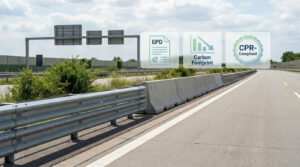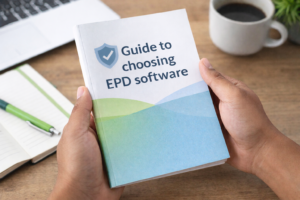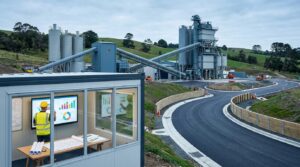Comparison of Top LCA Tools: Your Ultimate Guide to LCA Solutions
Life Cycle Assessment (LCA) is the scientific method to measure the environmental footprint of products and services.
Sustainability, climate change, the circular economy – they’re all becoming part of everyday business. As a result, the market for LCA tools develops quickly. Companies have an increasing need for LCA software.
In this article, we highlight and compare the different LCA software and tools you can choose from. Focusing on the tools that are commercially most used. This article includes:
Quick LCA tool overview
Expected Costs
In-depth LCA tool comparison (individual solutions, their unique approach, fit for purpose)
This overview includes our footprint tools Ecochain Mobius and Ecochain Helix, as well as the four other well-established LCA software solutions: SimaPro, GaBi, oneClickLCA, and openLCA. We compare them side by side, as well as describe each of them and their functionalities.
What is Life Cycle Assessment?
Life Cycle Assessment (LCA) is a scientific method used to assess the environmental impact of a product or service throughout its entire life cycle, from raw material extraction to production, use, and disposal. LCA software tools are designed to support this process, providing a comprehensive view of a product’s environmental footprint and helping businesses make informed decisions about sustainability.
By conducting life cycle assessments, companies can identify areas for improvement, reduce their environmental impact, and achieve their sustainability goals. These tools enable companies to assess the environmental performance of their products and services, ensuring that they are making the most sustainable choices at every stage of the life cycle.
Whether you are a sustainability professional or a product designer, LCA software can help you understand the environmental impacts of your products and make data-driven decisions to enhance sustainability.
For who is this LCA Software overview useful?
Various stakeholders, including product designers, engineers, and sustainability professionals, need to measure a Product Footprint, Life Cycle Assessment, or even a Product Carbon Footprint (PCF). Whether you’re new to the field or not – finding the right tool that fits your needs and purposes is difficult.
This article provides a quick overview of the world of LCA software and when to use which tool. However, just as each sustainability challenge is different – so are the goals of an LCA. You can find the different goals of an LCA in our LCA Beginner’s Guide.
LCA Software – Quick Overview
This overview helps you get more insights into the world of LCA software. We have summed up the results in the table below.
| Ecochain Mobius | Ecochain Helix | GaBi | OneclickLCA | openLCA | SimaPro | |
|---|---|---|---|---|---|---|
| Ease of use | Easy | Moderate | Moderate to difficult | Moderate to difficult | Moderate to difficult | Moderate to difficult |
| Free Trial | Yes, 7-day free trial | No, but demo is available | Yes, 30-day free trial | Yes, 14-day free trial | N.A. Free software | No, but you can download a demo version |
| Cloud-based Application | Yes | Yes | No, download only | Yes | No, download only | No, download only |
| URL | ecochain.com/mobius | ecochain.com/helix | gabi-software.com | oneclicklca.com | openlca.org | simapro.com |
Data Management in LCA
Data management is a crucial aspect of Life Cycle Assessment (LCA), as it involves collecting, storing, and analyzing large amounts of data related to a product’s environmental impact. Effective data management in LCA enables companies to make informed decisions about sustainability, reduce their environmental footprint, and achieve their sustainability goals.
LCA software tools provide features such as data input, data analysis, and data reporting, which help companies to manage their data efficiently. Additionally, LCA software tools often integrate with various databases, such as ecoinvent and ELCD, to provide access to a broad range of environmental data.
This integration allows companies to leverage comprehensive datasets to conduct thorough environmental assessments and ensure the accuracy of their LCA results. By utilizing advanced data management capabilities, companies can streamline the LCA process, save time, and focus on implementing sustainability initiatives.
The Costs involved with LCA tools
Life Cycle Assessment calculations rely on the data collected in Life Cycle Inventory (LCI) databases. Whilst some software comes with its own databases, most LCI databases commercially available need to be bought separately. Therefore, the costs of LCI data have to be taken into consideration when calculating the price of an LCA tool.
We can’t provide the costs of the listed software in our overview. That’s because some software providers do not disclose costs. They make a custom quote based on the size of your company, desired results, and required features. You can expect the total costs to include:
Payment for a subscription or license to use the software,
Additional costs to purchase an LCI database,
Often a fee for consultancy.
LCA Tools Comparison
Ecochain Mobius
Ecochain Mobius is one of the easiest-to-use Product Footprint and LCA tools available. With its intuitive interface and extensive in-tool guidance, users learn to measure and improve the environmental footprint of their product(s) in a short amount of time. Access to the world’s biggest environmental impact databases is included at no extra cost. The databases include the use of EcoInvent, the Environmental Footprint (EF), and the Dutch Nationale Milieudatabase (NMD). Combined they cover a lot of detailed environmental information on most materials, ingredients, or components.
Best fit with:
Ecochain Mobius fits best if you want to embrace sustainable Product Design in your company. Mobius allows you to easily test and analyze the impact of using alternative materials in your product. You can make improvements to your product’s design using an easy scenario functionality. Mobius also enables users to implement eco design strategies to enhance their product’s sustainability. Compare your product designs or benchmark your Product Footprint against product averages.
Users of Mobius have jobs related to R&D, Product Design, Product Management, Engineering, QHSE, and Sustainability Management. Due to its intuitive design Mobius can be used by beginners in the field of measuring environmental impact. However, intermediate and expert users will also enjoy how easy Mobius is in creating- and collaborating on their LCAs.
Ecochain Helix
Ecochain Helix is a cloud-based LCA tool that helps manufacturing companies measure and improve the environmental footprint of complete product portfolios and large-scale production facilities. The tool uses a top-down approach, called Activity-based Footprinting, which provides high-level steering information for companies and dashboards of environmental performance on a company, process, and product level. Ecochain Helix allows users to create Product Footprints, LCA reports, and Environmental Profiles (LCA results) for their entire product portfolio.
This makes it an ideal solution for companies looking to assess the environmental impact of multiple products simultaneously. Ecochain Helix is best fit for experienced LCA practitioners and is used in various industries, including construction, packaging, food, agriculture, and chemicals. Its comprehensive features and user-friendly interface make it a valuable tool for companies aiming to enhance their sustainability performance and achieve their environmental goals.
Ecochain Helix helps manufacturing companies measure and improve the environmental footprint of complete product portfolios and large-scale production facilities. Helix’s focus is creating LCAs in bulk and uses a top-down approach, called Activity-based Footprinting.
Helix provides high-level steering information for your company and provides dashboards of your environmental performance on a company, process, and product level. Next to that, you can create Product Footprints, LCA reports, and Environmental Profiles (LCA results) for your entire product portfolio – at once.
Best fit with:
Ecochain Helix is used in a number of different industries, from construction to packaging, food, agriculture, and chemicals. The tool isn’t very complex, however, the data collection trajectory and entering all the input data can be more extensive compared to creating an LCA for one product. Therefore, Ecochain Helix is fit for your purpose if you’re a more experienced LCA practitioner. If needed, support to implement Ecochain Helix is available to get you started.
Users: Mainly Sustainability Managers, Product or Facility Managers, and LCA consultants use Helix to generate environmental insights.
Gabi
GaBi was created in the mid-‘90s. It’s a very established LCA tool used in many industries, however, especially in its home market Germany. Just like SimaPro, GaBi is a technical extensive solution with many potential add-ons for sustainable product development. GaBi is used a lot by LCA experts and sustainability consultants. GaBi uses its own specific LCI database and allows you to make LCAs in different standards. In addition to making LCAs, the GaBi tool supports Life Cycle Costing and Life Cycle Reporting.
Best fit with:
GaBi is often considered a tool that fits best with LCA experts. If you want to make a complex and in-depth analysis of your Product Footprint, GaBi and Sphera provide you with all the right tools. GaBi is ideal for assessing the environmental impacts of products through detailed analysis.
OneClick LCA
One Click LCA is the only application in our list specifically designed for one industry: the construction sector. As a result, it offers many functionalities specifically needed for the construction sector. It has several modeling and reporting features that tailor well for the companies that make building materials or construction products.
Additionally, you can analyze the environmental impact of construction projects and buildings, including measuring and reducing carbon emissions. This is why the solution from Finland caters well to certificates like LEED (USA), the German DGNB, and BREEAM (UK).
Best fit with:
If you’re in construction and a more experienced LCA practitioner, One Click LCA provides several great solutions to measure and report environmental impact.
openLCA
Are you looking for free LCA software? OpenLCA could be a good solution for your company. It’s open-source software and you can use it at no cost.
OpenLCA has several deep-dive functionalities, which makes it useful for users with a more technical background. The software features enable you to adjust LCI datasets. This means the environmental datasets can be tweaked to match your product’s production process and inputs. Next to that, it also has several analytic features to assess the environmental impact and performance of your product.
With OpenLCA you can more extensively investigate the environmental datasets you add to the application. This allows for advanced supply chain analysis, including comprehensive assessments like environmental product declarations. As mentioned earlier, LCA tools rely on LCI databases if you want to use them to measure impact. OpenLCA provides access to many different databases, and a large share of these databases is not free.
Best fit with:
OpenLCA is an open-source LCA solution, which means that it is attractive for anyone starting off in the LCA world without a big budget. Like SimaPro and GaBi, in our view, this tool fits best with more advanced practitioners, LCA experts, and sustainability consultants.
SimaPro
SimaPro was established 30 years ago and is probably the most well-known LCA software in the market. The tool is available as desktop software as well as a cloud-based solution. However, the cloud-based option does not contain all features. SimaPro is a technical application with many optional add-ons that make it very versatile. Additionally, it enables its users to dive deep into the LCA calculations of a product and production processes.
Best fit with:
SimaPro is used primarily in the academic field and by experienced LCA consultants. As they mention on their website, it’s a tool for well-seasoned LCA experts. It allows you to model and analyze the environmental impact of a product’s life cycle in a systematic way. With SimaPro you measure the impact of your products and services across all life cycle stages.



